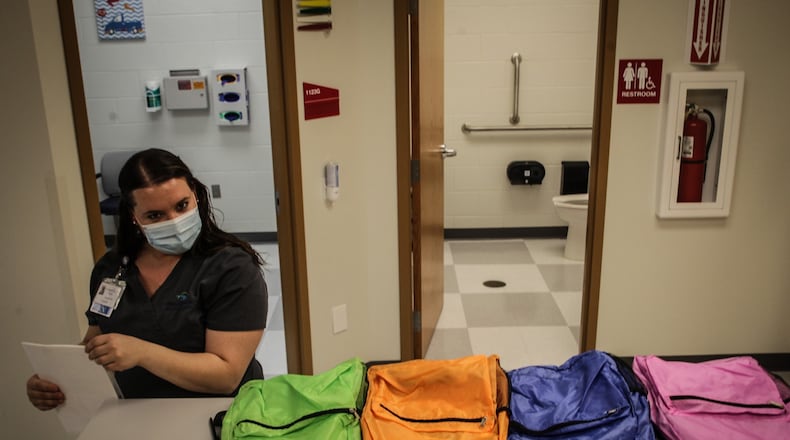A recent Dayton Daily News investigation found there is a growing moral opposition to vaccinations required for school with experts attributing anti-vaccine sentiments to misinformation.
The newspaper found parents are increasingly choosing to opt their children out of getting immunized against vaccine-preventable diseases like diphtheria, tetanus and pertussis, polio, measles, mumps, rubella, hepatitis B, and chickenpox. The percentage of children entering kindergarten with moral exemptions from getting such vaccines increased statewide last year and was over 10% at 14 area schools.
“Social media has a lot of misinformation that can increase vaccine hesitancy in some populations,” said Dr. Sara Paton, an associate professor of epidemiology at Wright State University’s Boonshoft School of Medicine. “Vaccination has become a political topic, which is unfortunate because we need to prevent these diseases.”
Patty Free, immunizations supervisor for the Clark County Combined Health District, said during the pandemic the need to quarantine and isolate led to providers seeing more patients by telehealth and reducing in-person visits when not necessary, which led to a drop in immunization levels.
“I believe we are beginning to recover some of the immunizations that may have been missed in the past two years,” Free said. “I do believe more parents are aware that they can sign a waiver exempting their child/children from immunizations, and without the education of why vaccines are important, may feel it is easier to choose to waive vaccines rather than to take the time to get them.”
Ohio does not require parents or guardians to undergo education on the benefits of immunizations if they choose to opt their children out of getting vaccinated. The state of Colorado enacted legislation in 2020 requiring a person who wants to claim a nonmedical exemption for an immunization to submit either a certificate of completion of an online education module or a certificate of nonmedical exemption.
More people choosing to not vaccinate their families increases the chance that vaccine-preventable diseases return to the community, Free said.
“When vaccines are used and when ... high percentages of the population are immunized (herd immunity), vaccine-preventable diseases no longer circulate and cause negative effects like paralysis from polio, swelling of the brain from measles, pneumonia from pertussis, losing a limb from meningococcal disease, and even death from any of the vaccine-preventable diseases,” Free said. “While it is rare, it is still possible. Without herd immunity, those that are not medically able to be vaccinated become more vulnerable.”
Vaccine hesitancy has brought back diseases once thought to be eradicated. Paton said measles was believed to have been eliminated in the early 2000s, but now there are cases of the measles each year.
“We need to be transparent with our information,” Paton said, recommending that health officials have effective communication, which was lacking at times during the COVID-19 pandemic.
“We also weren’t speaking in one voice,” Paton said about the messaging during the pandemic, with health officials at local, state and federal levels giving differing information at times. Having everyone on the same page helps individuals not become confused, she said.
“It’s so important that we all get vaccinated,” Paton said. “I don’t want children and families to suffer from preventable diseases.”
About the Author

